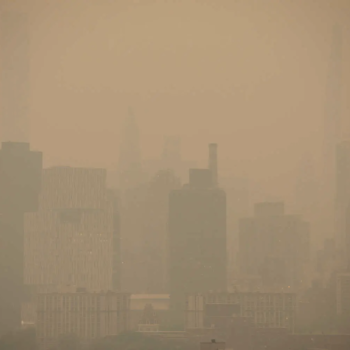|
|
Dubai, Dec 07 – As COP28 unfolds, attention is turning to the challenges faced by climate migrants and the need for risk-based labor policies. In a surprising scene just before COP28’s official commencement on November 30, migrant workers from Nepal and the Philippines stood in long queues outside Expo 2020, the event’s venue.
These workers, slated for various service roles during the conference, faced exposure to harsh conditions, low pay, and potential abuse. Many, unskilled and employed by different contractors, endured the scorching sun to secure entry badges for the high-security blue zone within COP28.
Their stoicism, despite challenging conditions, underscores the harsh reality faced by thousands of migrants in the Middle East, as highlighted by a recent Human Rights Watch (HRW) study in Nepal, Bangladesh, and Pakistan.
The study revealed rampant labor abuses, including high recruitment fees, irregular wages, and extreme heat exposure. Climate migrants, seeking better lives, paradoxically work in environments susceptible to harsh climate conditions.
The construction of Expo City, COP28’s venue, witnessed migrants toiling in extreme heat, leading to health issues like heat stroke and dehydration-induced chronic kidney failure.
According to Michael Page, Deputy Director at HRW, migrants interviewed in the UAE were often exposed to extreme heat, exacerbated by climate change. The study indicates a pressing need for robust climate and development action, highlighting the vulnerability of migrants to climate-induced risks.
Global Snapshot of Climate Migration

Image Credit: nytimes.com
The International Organization of Migration (IOM) underscores the profound impact of the climate crisis on migration, with 31.8 million internal displacements in 2022 due to weather-related hazards. The World Bank’s Groundswell Report further reveals significant displacements in South Asia, Sub-Saharan Africa, the Middle East, and North Africa.
In South Asia alone, 12.5 million people were displaced by climate disasters in 2022, which could soar to over 216 million by 2050 without immediate action. The Nepal government identifies the UAE and Qatar as favored destinations for Nepali migrants, with 37,492 arrivals between mid-July and mid-October.
Global Recognition and the Path Forward
At COP28’s inaugural ceremony, UN Secretary-General Antonio Guterres highlighted Nepal’s climate crisis, emphasizing the link between melting glaciers and global climate havoc. Nepal’s Prime Minister Pushpa Kamal Dahal announced plans to seek compensation under the Loss and Damage mechanism.
Nepal acknowledges the need for external support and resources to address climate-induced displacement and migration. Maheshwar Dhakal, Joint Secretary at the Ministry of Forests and Environment, asserts the cost of implementing Nepal’s National Action Program, estimated at USD 50 billion, necessitates substantial external funding.
Urgency for Risk-Based Labor Policies
As negotiations unfold, experts urge host countries, particularly the UAE, to adopt immediate measures. Migrant workers constitute 88% of the UAE’s labor force. HRW proposes a risk-based labor protection policy to safeguard workers from harsh weather conditions.
While the UAE’s ‘Midday Break’ initiative aims to restrict work between 12 and 3 p.m., loopholes exist, allowing employers to continue infeasible work. Michael Page advocates a risk-based approach, citing the wet bulb globe temperature (WBGT) index, which accounts for multiple factors influencing perceived hotness. Adopting such measures, tailored to local conditions, would ensure climate justice for vulnerable workers.
As Nepal gains global recognition for its climate challenges, COP28 provides a platform to address climate-induced displacement. The call for risk-based labor policies emerges as a crucial step towards protecting the rights of climate migrants in the face of escalating climate crises.












